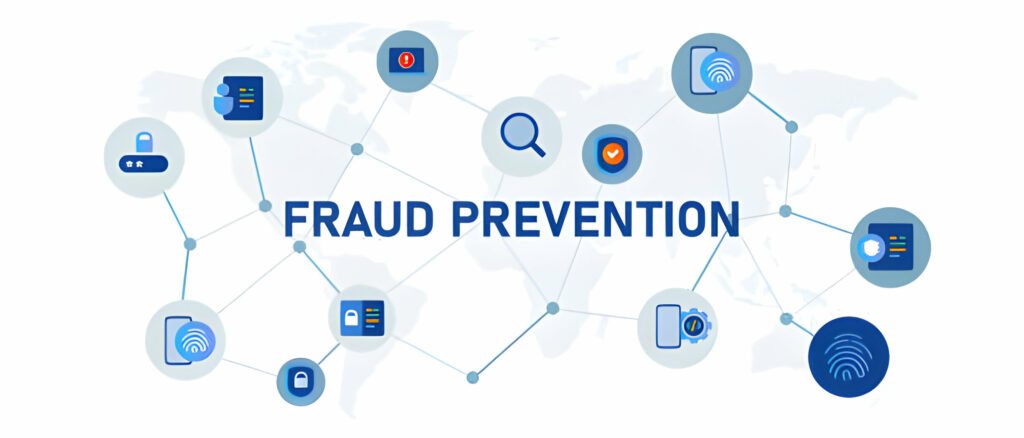
Fraud represents a pervasive threat to businesses of all sizes, posing significant risks to their assets, reputation, and overall viability. In today’s complex and interconnected business landscape, the importance of implementing robust fraud prevention and detection measures cannot be overstated. This exploration delves into the critical significance of safeguarding business assets and reputation through effective fraud prevention and detection strategies.
The Stakes of Fraud in Business
1. Financial Loss:
Fraudulent activities, such as embezzlement, asset misappropriation, or fraudulent financial reporting, can lead to substantial financial losses for businesses. These losses not only impact the bottom line but also undermine the financial stability and sustainability of the organization.
2. Reputation Damage:
Fraud incidents tarnish the reputation and credibility of businesses, eroding trust among stakeholders, including customers, investors, and business partners. The resulting damage to reputation can have far-reaching consequences, affecting customer loyalty, investor confidence, and business relationships.
3. Legal and Regulatory Ramifications:
Businesses implicated in fraudulent activities may face legal action, regulatory penalties, and compliance-related challenges. Violations of laws and regulations, such as the Sarbanes-Oxley Act or the Foreign Corrupt Practices Act, can result in severe consequences, including fines, sanctions, and legal liabilities.
4. Operational Disruption:
Fraud incidents often trigger operational disruptions, diverting resources and attention away from core business activities. The need to investigate and address fraud allegations can disrupt normal business operations, leading to productivity losses and organizational strain.
The Imperative of Fraud Prevention and Detection

1. Proactive Risk Management:
Implementing effective fraud prevention measures enables businesses to proactively identify and mitigate potential risks before they escalate into significant losses or liabilities. By assessing vulnerabilities and implementing controls, businesses can strengthen their resilience against fraud threats.
2. Preserving Financial Integrity:
Fraud prevention and detection efforts are essential for preserving the financial integrity of businesses. By maintaining accurate financial records, enforcing internal controls, and conducting regular audits, businesses can deter fraudulent activities and uphold transparency and accountability in financial reporting.
3. Protecting Stakeholder Trust:
Building and maintaining trust among stakeholders is paramount for business success. Effective fraud prevention and detection measures demonstrate a commitment to integrity, ethics, and responsible business practices, thereby fostering trust and confidence among customers, investors, and partners.
4. Ensuring Regulatory Compliance:
Compliance with laws and regulations is non-negotiable in today’s business environment. Implementing robust fraud prevention and detection measures not only helps businesses comply with legal and regulatory requirements but also safeguards against potential legal and reputational risks associated with non-compliance.
Strategies for Effective Fraud Prevention and Detection

1. Establishing Internal Controls:
Develop and implement comprehensive internal control systems to safeguard assets, prevent fraud, and ensure compliance with policies and procedures. This includes segregation of duties, authorization controls, and regular monitoring of transactions.
2. Employee Training and Awareness:
Invest in employee training and awareness programs to educate staff about the risks of fraud and the importance of ethical behavior. Empower employees to recognize red flags, report suspicious activities, and adhere to established protocols.
3. Implementing Fraud Detection Technologies:
Leverage technology-driven solutions, such as data analytics, artificial intelligence, and machine learning, to detect anomalies and patterns indicative of fraudulent activities. These advanced technologies enable businesses to identify potential fraud instances in real-time and take proactive measures to address them.
4. Conducting Regular Audits and Reviews:
Perform regular internal and external audits to evaluate the effectiveness of fraud prevention measures and detect potential vulnerabilities. Conduct thorough reviews of financial statements, transactions, and operational processes to identify irregularities and discrepancies.
5. Promoting a Culture of Integrity:
Foster a culture of integrity, transparency, and ethical behavior within the organization. Lead by example, emphasize the importance of honesty and integrity at all levels of the organization, and reward ethical conduct.
Conclusion
In conclusion, the imperative of implementing effective fraud prevention and detection measures cannot be overstated in today’s business landscape. By safeguarding assets, preserving reputation, and ensuring regulatory compliance, businesses can mitigate the risks posed by fraudulent activities and uphold trust and confidence among stakeholders. Through proactive risk management, robust internal controls, employee awareness, and leveraging advanced technologies, businesses can fortify their defenses against fraud and position themselves for sustained success in an increasingly complex and dynamic business environment.